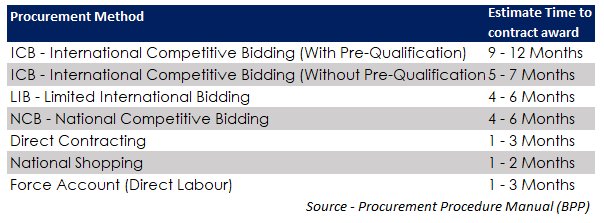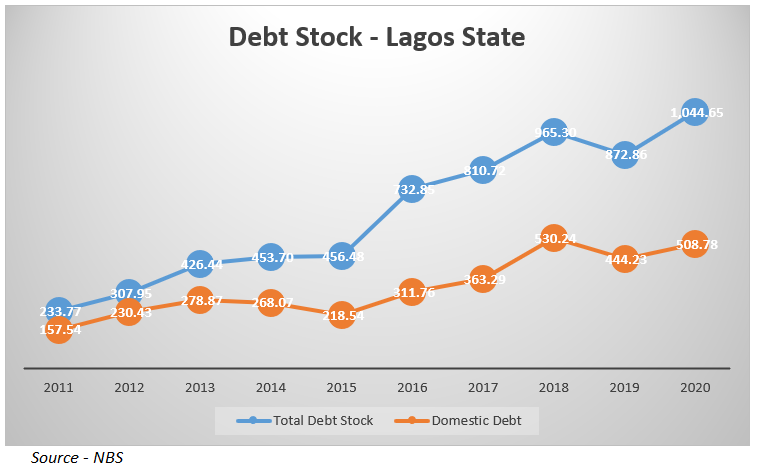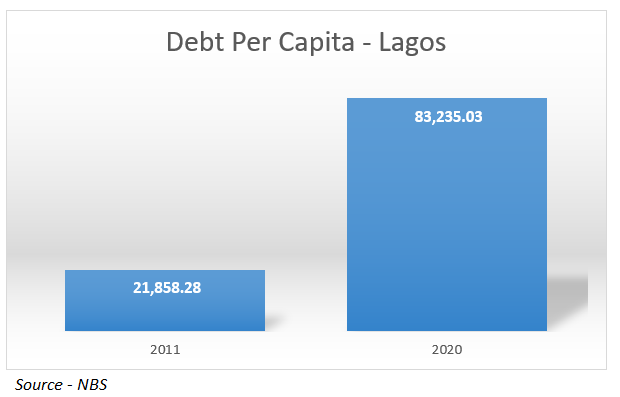
If you want to know why it takes so long to initiate and implement projects in Nigeria, take a look at the Public Procurement Act 2007 or rather download the Procurement Procedure Manual (see link). The process is painstakingly long.
A THREAD
bpp.gov.ng/index.php%3Fop…
A THREAD
bpp.gov.ng/index.php%3Fop…
First, the procurement procedure outlines the estimated times from when the procurement process starts to the time the contract is awarded and signed. See table. Depending on the contract and "all things being equal", this process can take upto 12 months. 

Depending on the project, there are "Pre-Qualification" requirements. This is typical for large projects. There is a time frame given for this and additional time if a contractor should ask for more information. This is done via the means of a SPN (Specific Procurement Notice)
Note: The SPN must be issued as an ad in at least two national newspapers and the Federal tenders Journal. With Pre-Qualification concluded, the procuring entity sends the Invitation for Tender (IFT) and tendering documents only to the pre-qualified potential bidders.
A Request for Expression of Interest (REoI) would also be published in at least two national newspapers for interested consultants to provide the minimum information required to make a judgment on the firm’s suitability for being short-listed. 14 days is provided for this.
Once contractors are prequalified, an invitation to bid is then sent out. For ICBs it should be advertised in two newspapers while for NCBs, it should be pasted on the notice board of the procuring entity not less than six weeks before the deadline for submission of the bids.
During this period, d procurement agency may modify the bid documents, add to it, or organise a pre-bid conference. In all cases they must be ready to extend the deadline given. At this stage, d procuring agency can select a preferred bidder, reject all bids or stop d procurement
Then we talk of the "Biding Opening" Process, the "Bid Examination Process", the "Bid Evaluation" Process. All with specific procedural steps that must be followed. The bidders are required to keep their bid valid for a long period and if need be extend it because of delays.
After the evaluation, a report will be prepared and a preferred bidder selected. Upon conclusion of the contract procedures, the Ministerial Tenders Board shall then forward their conclusions and all relevant supporting documentation to the Bureau for Public Procurement (BPP)...
...for Due Process compliance Review and Certification. It is only after the Due Process Cert is issued by the BPP that the contract will be forwarded to the Federal Executive Council (FEC) for final approval to award contract.
Note: Budgetary provision must already be in place.
Note: Budgetary provision must already be in place.
All these is before the contractor starts work. When u factor in the fact that in the life cycle of a project, there might be budgetary delays, design modification, EIA or even community/labour related issues, you'll understand why it takes so long to execute projects in Nigeria.
While I'm a strong proponent of due process, I also believe that we should be able to fast track this process. The process is too freaking long. We should be able to tag certain projects as high priority & fast track them even if it means declaring a SoE in that sector. Eg power.
Spending 2 - 4 years to initiate a project which will take another 4 years or 4 budget circles to implement is simply not good enough. This is beyond partisanship and it is beyond APC or PDP. No matter the govt that comes into power, they will be confronted with the same problem.
Finally, I wish to thank @toluogunlesi and @osita_chidoka for inspiring this thread. Though their exchange was partisan, it allowed us to have a broader and more important conversation about our procurement process and the need to re-calibrate it for urgent national development.
Many have asked why didn't the FG try to reform the procurement process to fast track execution of projects. Well from media reports, it appears govt did try in 2016. How many remember the brouhaha over a proposed “Emergency Economy Stabilization Bill?" thenationonlineng.net/buhari-seeks-e…
According to media reports, the govt sought powers to:
- abridge the procurement process to support stimulus spending on critical sectors of the economy;
- make orders to favour local contractors/suppliers in contract awards; and
- allow virement to projects that are urgent.
- abridge the procurement process to support stimulus spending on critical sectors of the economy;
- make orders to favour local contractors/suppliers in contract awards; and
- allow virement to projects that are urgent.
According to the reports, "the extant law on procurement does not allow contract award earlier than six months after decision. Part of this is a mandatory advertisement of the contract for six weeks." The proposed bill also sought to raise mobilization of contract from 15% to 50%
This news report was greeted with criticism with many calling it dictatorial. The noise was so much that the FG had to publicly deny that it ever sent such a bill to NASS saying it was only working on "Policy Options". The popular term then was NO TO EMERGENCY POWERS.
It's important to note that we were in the midst of a recession and there was the need to stimulate the economy. Hence this needs to be reviewed within that context. However, going forward, I think there's a need to review the PPA 2007 to allow for fast tracking critical projects
• • •
Missing some Tweet in this thread? You can try to
force a refresh






